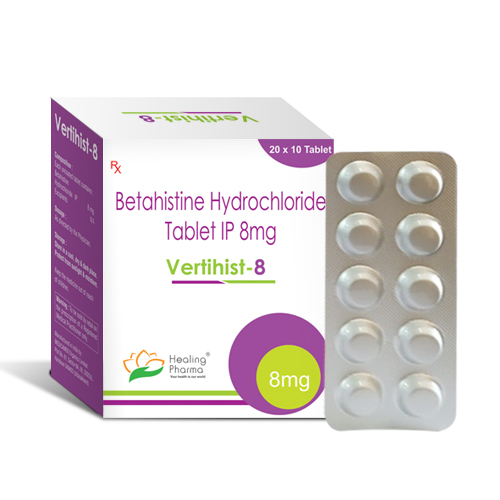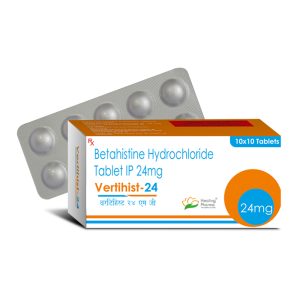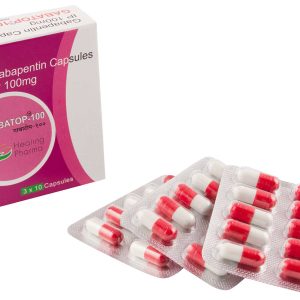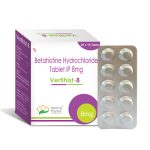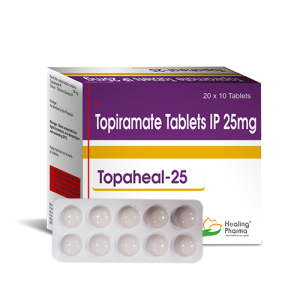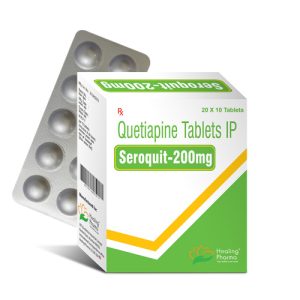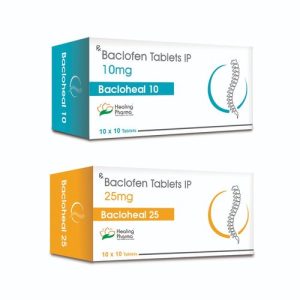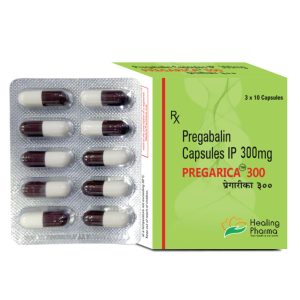| Strength | 8 mg |
| Packaging size | 10 |
| Brand | Healing Pharma India Pvt Ltd |
| Composition | Betahistine 8 mg |
| Manufacturer | Healing Pharma India Pvt Ltd |
| Prescription/Non prescription | Prescription |
Betahistine (Vertihist 8) 8 mg tablet is an antivertigo drug first used to treat episodes of vertigo, tinnitus, and hearing loss experienced by people with Meniere’s disease. It is also commonly used for patients with balance disorders.
Drug = Betahistine
Number of Pills Per Order = 10
Strength = 8 mg
Manufacturer = Healing Pharma
How To Take
This medicine should be taken together with food or immediately after a meal to reduce any stomach discomfort that it may cause. Try to take it at the same time each day.
Betahistine must be taken regularly for it to be effective. Continue taking this medicine even when you feel better.
Take Betahistine precisely as directed by your doctor or according to the instructions on the label. Do not take more or less than instructed by your doctor.
Dosage of Betahistine (Vertihist 8) 8 mg
Adult: For vertigo, tinnitus and hearing loss associated in patients with Meniere’s disease: As betahistine dihydrochloride: Initial: 8-16 mg three times a day or 24 mg twice a day, adjusted according to individual response. The maintenance dose is 24-48 mg/day. Maximum of 48 mg/day. As betahistine mesilate: 6-12 mg three times a day.
Missed Dose
If you miss a dose, skip the missed dose and return to your regular dosing schedule. If you often forget to take your medicine, let your doctor and pharmacist know.
Do not double a dose under any circumstances.
Overdose of Betahistine (Vertihist 8) 8 mg
Signs of overdose may include the following:
- Nausea
- Somnolence
- Abdominal pain
- Convulsion
- Pulmonary or cardiac complications
Seek medical help immediately.
Contraindications
People with the following medical conditions should not take Betahistine:
- Pheochromocytoma
Side Effects
Betahistine may have the following side effects:
- Rarely, ventricular extrasystoles, hypotension (including orthostatic hypotension), and tachycardia
- Nausea
- Dyspepsia
- Rarely, vomiting, bloating, abdominal distension or pain, fatigue, and malaise
- Hypersensitivity reactions (e.g. anaphylaxis)
- Rarely, urticaria
- Headache
- Rarely, dizziness, convulsions, somnolence, confusion, hallucination, dyspnoea, bronchospasm, rash, pruritus, and vasodilation.
Warnings
Do not use Betahistine in people with the following conditions:
- Pheochromocytoma
Inform your doctor and pharmacist if you are taking any of these medicines:
- Isocarboxazid
- Phenelzine
- Tranylcypromine
- Cetirizine
- Chlorphenamine
- Loratadine
- Salbutamol
- Terbutaline
- Selegiline
Inform your doctor and pharmacist if you are taking any other medicines, including herbal tonics such as traditional Chinese medicines, supplements and non-prescription medicines.
This list does not include all medicines that may interact with Baclofen.
How Does Betahistine (Vertihist 8) 8 mg Work?
Betahistine is a histamine analogue known to act as both partial histamine H1-receptor agonist and histamine H3-receptor antagonist in nerve tissue. Stimulating the H1-receptors causes a vasodilatory effect and increased permeability in the blood vessels, which results in reduced endolymphatic pressure. H3-receptor antagonism increases the levels of neurotransmitters in the brainstem, which blocks the activity of vestibular nuclei, helping to restore proper balance and reduced vertigo symptoms.
Uses
Betahistine is used to treat the following conditions:
Special Precautions and Connected Warnings
Take special precautions if you have the following conditions:
- Bronchial asthma
- Cardiovasculardisease
- Active or history of peptic ulcer disease
- Hepatic impairment
- Pregnancy and lactation
- Avoid alcohol
Storage Conditions
- Store below 25°C and protected from moisture and light.
- Store in a cool, dry place away from the reach of children.
- Do not use Betahistine that is expired or out of date.

